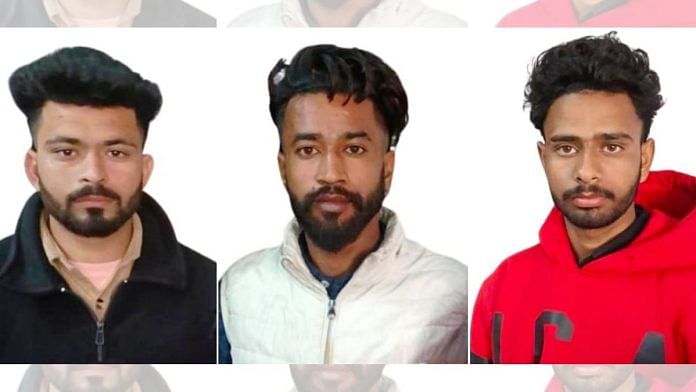


New Delhi: A United Kingdom-based suspected Khalistan Zindabad Force (KZF) operative linked with the module behind the 18 December Punjab grenade attack and reported to be currently serving in the British Army was in the Indian Army before he departed the country nearly a decade ago, ThePrint has learnt.
Hailing from Tarn Taran’s Miyapur village at India’s border with Pakistan, Jagjeet Singh (37) was in the Indian Army’s Sikh regiment with his elder brother, sources in the Punjab Police said. While he has migrated to the UK, his brother is still with the Indian Army, and his brother-in-law works at a nationalised bank, they said. The family, originally from Kahan Singh Wala village in Ferozepur’s Jalalabad, moved to Miyapur nearly 20 years ago.
ThePrint has contacted the Indian Army and is awaiting the details regarding the service record of the two individuals.
Sources said the case investigation is now focused on finding the connection between Jagjeet and Nita, who has been ill for a long time. They claimed to have learnt from sources that Jagjeet joined the British territorial army on his arrival to the UK and served in Afghanistan on a special assignment.
However, a British Army spokesperson denied involvement of any soldier in the grenade attack. “There is no one with either the name or pseudonym provided currently serving in the British Army. We have had no approach from Indian authorities about anyone in the Army being involved in the incident you reference in any way,” a British Army spokesperson told ThePrint in a statement.
The image posted on media outlets, however, “is of a British Sikh soldier whose name does not match any of those provided, even given variations in spelling”, the spokesperson further said.
In an audio allegedly released by Nita hours after Monday’s encounter, the KZF chief alleged a “conspiracy” and “staged encounter”. “This is nothing but a conspiracy by both Punjab and UP Police. They will have to bear the brunt of this staged encounter,” Nita can be heard saying in the audio allegedly released by the KZF.
Scope of investigation
ThePrint reported Monday that senior officials dealing with the case are broadening the scope of the investigation, and more criminals receiving money from foreign sources are under their lens.
The Gurdaspur district police have narrowed down their search to one Shebaz from Agwan — the village of Ravi and Greece-based operative Mannu — for his role in facilitating communication of the three slain men with top KZF figures.
“This guy played a key role in bringing the three into contact with KZF operatives and helped bring them on board with the plan,” a senior official told ThePrint.
Another official said that Khalistani terrorist modules are now actively recruiting low-key criminals for their acts, such as the grenade attack.
“This approach of hiring individuals with little or petty criminal history allows their module to be a low-key affair involving low costs. They are failing to attract high-profile criminals who are not falling for their Khalistan gimmick,” another senior official said.
These officials said while the three operatives killed Monday appear to have only been involved in the grenade attack, one more module, with the same approach of attacking police stations or check posts in the border regions of Punjab, remains active.
“Although they are different modules, one of KZF and one of BKI (Babbar Khalsa International), there is a high chance that there are common suppliers of ammunition, such as grenades, for both. In the past, we have seen great synergy between these terrorist groups, working in the same module to attack the security apparatus,” another senior official said.
(Edited by Madhurita Goswami)
Also Read: 20-yr-old Pakistani arrested in Canada for plotting ‘largest terror attack on US soil since 9/11’




